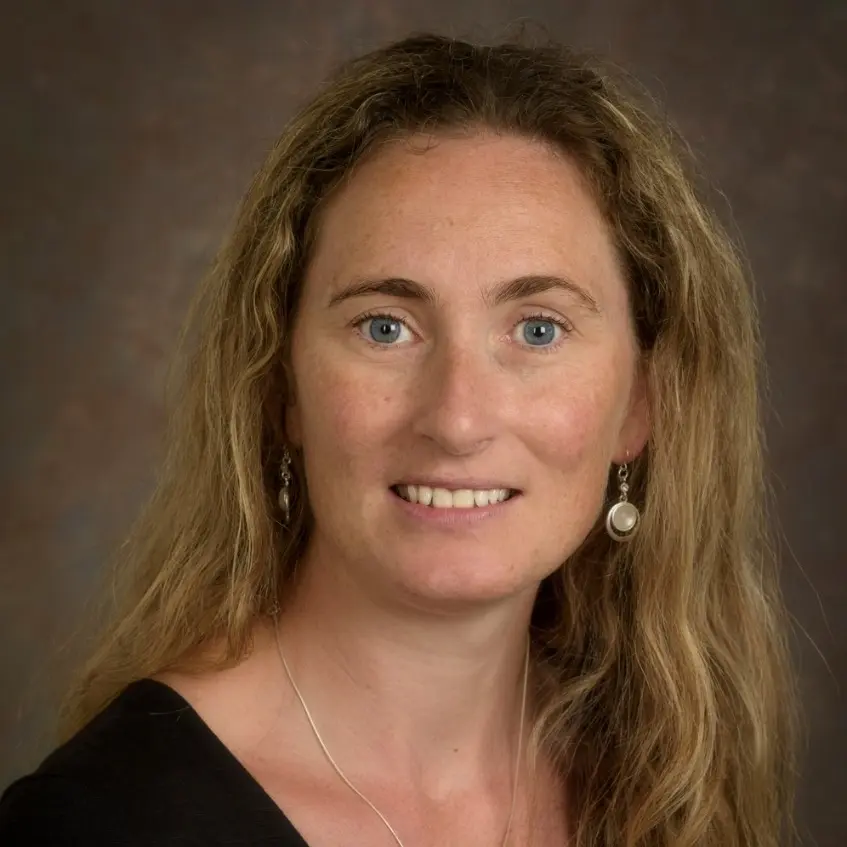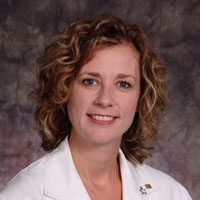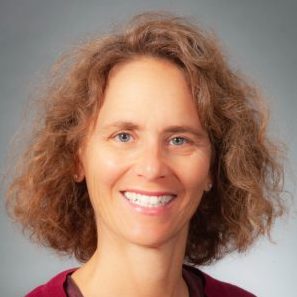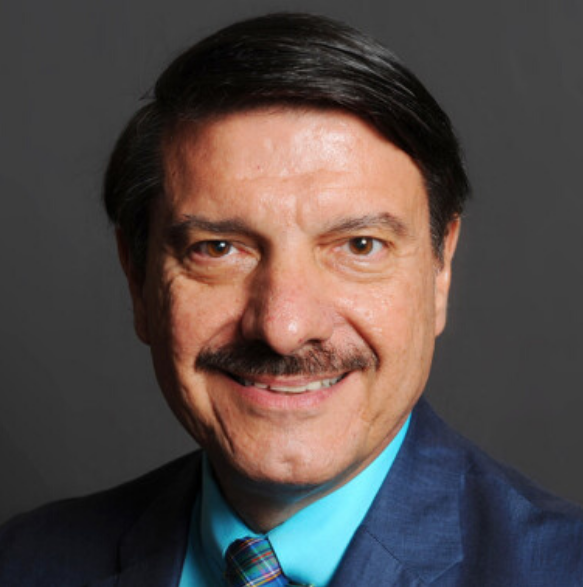Smoking Cessation and Sleep
Episode 2: In this episode, Dr Rizzo speaks with Freda Patterson, PhD; Heather Bittner Fagan, MD, MPH; and Denise Taylor, MS, RD, regarding novel clinical interventions in cardiovascular disease, including sleep quality and smoking behavior. They also speak about the messaging around smoking cessation.

Freda Patterson, PhD, is an associate professor of behavioral health and nutrition at The University of Delaware in Newark, Delaware.

Heather Bittner Fagan, MD, MPH, physician, faculty member, and associate vice chair for research in family and community medicine at ChristianaCare.

Denise Taylor, MS, RD, is a project manager for tobacco cessation, Project Connect, at ChristianaCare.

Albert A. Rizzo, MD, is the chief medical officer of the American Lung Association and a member of ChristianaCare Pulmonary Associates in Newark, Delaware.
TRANSCRIPTION:
Host: Hello, and welcome to Critical Observations in Pulmonary Medicine, led by Chief Medical Officer of the American Lung Association, Dr. Albert Rizzo. The views of the speakers are their own and do not reflect the views of their respective institutions.
Albert Rizzo, MD: We are fortunate for today's discussion that we have an academic researcher from behavioral health and nutrition, a dietician, nutritionist, and trained smoke cessation counselor, and a primary care physician researcher, who have been working together on a topic that can help so many implications for our clinical impact. I want to start it out by having each of you give us a brief overview of your current roles, affiliations, and how you developed the interest in today's topic of novel clinical interventions in cardiovascular disease, specifically around the topic of sleep quality and smoking behavior. Freda, can we start with you?
Freda Patterson, PhD: Sure. Thanks for having me. So I'm Freda Patterson. I'm an associate professor in the department of behavioral health and nutrition in the College of Health Sciences at the University of Delaware. And really, I got into today's topic, which is really about sleep and smoking cessation and pulmonary health in high-risk populations... I really got into that from a background of smoking cessation. I was a smoking cessation counselor for almost 10 years at the University of Pennsylvania. And from there, I learned about what were the things that interfered with people's ability to quit smoking. And that was one of my first introductions to sleep as being an important determinant of the trajectory of smoking cessation. And later, as I developed my own research in this area... It's quite well-known that insomnia is a clinical metric of withdrawal and that is a predictor of relapse. So I think that converged those worlds for me as I moved forward in my research.
Albert Rizzo: Very good. And Denise, can you tell us about how you got here?
Denise Taylor, MS, RD: Sure. Hi, I'm Denise Taylor. I'm the project manager for tobacco cessation at ChristianaCare, and I collaborate closely with Freda at University of Delaware. I'm also a registered dietician by training. And throughout my career, I've been involved with cardiovascular disease prevention in general, whether it's related to smoking or diet and the research around that and then also how that translates into clinical care. So we at ChristianaCare have an inpatient tobacco treatment program, and we collaborated with Dr. Patterson at University of Delaware to help reach patients at a teachable moment and help them quit after a hospital stay. So we've worked closely on research related to that and since then have collaborated on some research related to sleep and smoking that took place at University of Delaware.
Albert Rizzo: Thank you, Denise. And Heather.
Heather Bittner Fagan, MD, MPH: It's great to be here. My name is Heather Bittner Fagan. I'm a primary care physician and researcher at ChristianaCare. I came to work with this wonderful team because my research of late has been very much center around lung cancer screening. And as you know, Al, we see lung cancer screening as really important, crucial teachable moment to hopefully help people to quit smoking.
Albert Rizzo: Absolutely, can't agree more. So, in our pre-call, we did talk about the fact that many of these things that we learn about how we can become healthier involve behavioral change, and in and of itself sounds very challenging. And I know the work that you've all done revolves around how sleep and whether or not we smoke or not can play a role in the cardiovascular prevention that we're talking about, and for that matter, pulmonary health as well. So can we get into a little more specific research that's been done? I know Freda's probably done the bulk of that, and we will start out with her, but then talk about how that can translate the clinical interventions that Denise might use or Heather might use in her practice. So could we talk about that maybe started out with Freda.
Freda Patterson: Yeah, how some of my work has translated into interventions... So I think one of the main areas, particularly as it pertains to cardiovascular health, we did a lot of observational work and a lot of work looking into the role of access to smoking cessation treatments. And we did focus groups, and we learned that treatment-seeking smokers were frustrated, particularly those of lower income were frustrated about their inability to be able to access treatment and to get FDA-approved treatments for smoking cessation. And actually, my work with Denise here, that led us to develop a protocol and a program where we would train food pantry personnel to be smoking cessation counselors so that they could deliver smoking cessation treatment right at the source with a captured population. And that across the state of Delaware, that was probably one of our most successful treatments that we delivered in terms of getting people who maybe would not have otherwise considered quitting smoking to actually try to quit smoking. I know I didn't really get into the sleep piece there, but Denise, do you want to talk anymore about that intervention we did, because I think that was really work that brought us together?
Denise Taylor: Just that it goes along with the whole theme that Heather talked about too is just at a teachable moment. And whether it's in the hospital and they had a heart attack or it's at the food pantry somewhere they come back to regular regularly with people that they trust, or whether it's during lung cancer screening, meeting people where they are at a good time for them to make the behavior change is an important theme in all of this. And getting folks to come back again is, if they're already coming to the food pantry to pick up their essential items, then it's a great time to be able to repeatedly meet with them. We do the same thing with cardiac rehab, for example. Patients are coming back regularly and so we... or pulmonary rehab, we can help them quit smoking at the same time with meeting with a counselor.
Albert Rizzo: And you bring up a point that's so popular during COVID now is not just the message, but the trusted messenger that delivers it, certainly around vaccine hesitancy. As the Lung Association, we've had to deal with getting the science out, but then also going to the level of the individual, whether it's at their churches, or as you mentioned, the food pantries, just to get somebody trusted in that community who can deliver the message. Can I switch over to Heather for a second and continue on the smoking cessation theme? I know clinicians are busy, and I know, Heather, a lot of what you've done is being able to figure out how workflow and practices, whether it's smoking cessation or referral to lung cancer screening, can be implemented in a way that's more efficient. Can you speak on that a little bit, Heather?
Heather Bittner Fagan: Let me first say, because I think it's really funny, I literally wrote down as you were talking trusted messenger. And I think that it's really important to understand that primary care and the teams that function in primary care are very often the trusted messenger for these types of messages, especially smoking, which as you know, the greater literature really talks about the stigma of smoking and how people are somewhat reluctant to engage in conversations about their smoking, especially with the healthcare system, because we're the people that are probably most likely to be a little bit judgey about that. So I think that there's a couple things that I would underscore from this.
Heather Bittner Fagan: So first, as physicians, we are becoming increasingly aware of the importance of sleep in many health outcomes. So this is really clinically applicable for us to think about smoking cessation. As Freda said, we know that people want to quit. They know they should quit. So where is the gap? What's getting in the way? And what this research shows is that, certainly, sleeping might be the thing to take on in order to move that patient over that gap to actually taking action. The other thing that Freda and Denise's work really shows is the importance of teamwork. People do trust the primary care physician. They do want to know that their primary care physician is telling them to quit smoking and is helping them quit smoking. But given the average amount of time that a primary care physician has with a patient, we really have to think about how do we build a system and a team around that so that the help that the patient is getting is not just from that person and it's not just in that face-to-face moment of the visit.
Freda Patterson: The empathy piece, yeah, so I think that... And this really brings in the food pantry study, where a lot of times, in our qualitative work, in our focus groups with our smokers, they do say, being a closet smoker is not unheard of. There are quite a few smokers who feel the stigma, who feel the shame, and they're not that willing to come out and say, "Yes, I'm a smoker and I need help." And sometimes, when they talk to their physician, that there may be some fear of what the retribution may be for being a smoker. So I think when we talk about access to treatment, I think sometimes there is room for people from the community to be trained and to become modalities for delivering healthcare.
Freda Patterson: And, well, maybe healthcare is a little bit strong, but certainly health coaching and helping bring about more positive behaviors among people, because I think community personnel, they have the capacity to do that, to be trained to do these things, and I think that is an avenue that can allow us to reach populations that may not otherwise be willing or want to go to their doctor. And I think that's all part of systems-based approaches to preventative medicine, where we leverage and we use all these different stakeholders to help bring about better health behaviors and better health outcomes.
Albert Rizzo: Can I go back to Denise for a second? And I know you're mainly doing an inpatient program at ChristianaCare, which I'm very proud of that. It's been my institution for all my time in practice these last 30 years in Delaware. Can you tell us a little bit more about how that got implemented and also how does it work once the patient leaves? I know you have the Delaware Quitline, which you work with closely as well.
Denise Taylor: Sure. Thanks, Al. I know that, or we know that intervention in the hospital is only effective if it's followed up with at least a month of cessation support. So we try to visit the patient at the hospital and the bedside, but more importantly, we follow up with them post discharge with an automated texting or phone service to make sure that they get connected to care post discharge. So we coordinate with the Delaware Quitline. And through Delaware's Quitline, which is one of the most robust in the country, we're able to provide free face-to-face counseling, free telephone counseling, and at no charge, all seven FDA-approved medications, including combination therapy, so the patient can get the patches and the gum, which we know is better than just one or the other. They also can get free Varenicline, which Dr. Patterson and I have worked closely on studying in relation to sleep. So it's really a great service that a lot of folks don't know about. So I think what Heather said, and what Freda said is that people want to quit, but a lot of times they don't know that this free service is available in the community to them when they're ready.
Albert Rizzo: Yeah, you're right. Delaware's Quitline is certainly among the best in the country.
Heather Bittner Fagan: I just want to add to that that ChristianaCare does have a direct referral option to the Delaware Quitline and the Delaware Quitline Works. And so that's another way that you can build systems to assist patients.
Albert Rizzo: Very good. Wanted to get back to the sleep aspect of some of this. I know, as a pulmonary physician, I mainly see patients because of sleep apnea, which is certainly one of the more common sleep disorders. I actually was lucky enough to do some work with Freda around that, but I think just sleep, in general, and maybe Heather then can comment on that, is not always given a fair shake with regard to how we deal with it when a patient talks about their symptoms and whether or not they're getting proper sleep. And I know Freda's work has shown that there's a big difference in how people's quality of life is affected by things like circadian rhythm and lack of sleep. And so, Freda, can I turn it back to you for a bit talk about the sleep issues?
Freda Patterson: Yeah, for sure. So some of our other work in terms of smoking cessation is we learn that when we try to help treatment-seeking smokers improve their sleep health, we find that when, as smokers, that if we delivered an intervention in the three weeks leading up to a smoking cessation quit attempt, we find that improving that pre-treatment sleep improved the odds of cessation after quitting. And that was a really quite a profound finding. And that those who improved their sleep the most prior to quitting had the most success, so that was a very encouraging result.
Freda Patterson: In another study that we have ongoing, we have a cohort of about 300 African-American smokers who are at risk for pulmonary disease. So they have early-stage cardiopulmonary disorder. And what we studied in them was the relationship... So we all know that smoking is a huge risk factor for COPD. And what we were really interested in seeing was the extent to which sleep may alter that relationship. So we hypothesized that, among those smokers, if they were sleeping better, that we wanted to see if whether that improved some of their functional outcomes. So we studied this in a sample of about 200 smokers. And what we found was that indeed, if they had a better sleep duration and a higher sleep efficiency, meaning that of the time they spent in bed, they had a higher percentage of time being asleep, what we found was that improvements amongst heavier smokers who had better sleep duration and sleep efficiency, they actually walked significantly further in the six-minute walk test. So that was really an exciting finding for us.
Freda Patterson: And of course, we all know that for people diagnosed with COPD, particularly smokers diagnosed with COPD, quitting smoking is always going to be the first line of treatment for COPD. We always want those folks to quit smoking, but what these results showed as well was that if we could improve their sleep as well, their sleep duration, and their sleep efficiency, that that may also have positive benefits for their functional capacity. So that was a really interesting finding for us that definitely has some clinical implications.
Albert Rizzo: No, that's a great point, the sleep wellness, certainly, as compared to just treating the diseases that manifest themselves. Can I switch over to Heather and see what her comments are on the care and the primary care practice with regard to sleep?
Heather Bittner Fagan: So I'd like to first underscore what Freda said. There's a big difference between sleep health and diagnosing diseases of sleep. In some ways, the traditional medical training and practice is almost more conducive to understanding and acting upon sleep disease. What is new and really pushed to the forefront by work in the last 10 years or so is this idea of addressing sleep health. Primary care physicians, for the most part, I would argue are pretty aware that sleep hygiene, sleep health, sleep wellness affect multiple aspects of health and wellness. We know that when people sleep better, their mood is better. They're better able to lose weight. And thanks to Freda's research, we know that they're better able to quit smoking. So that evidence certainly pushes us to consider that more when we're addressing the needs of the patient.
Heather Bittner Fagan: One of the challenges, though, is that the problems that people have with sleep can vary from pretty simple to pretty complex. So sometimes it might be as simple as finding out that someone started a new medication that has completely disrupted their sleep or that they're leaving a TV on in their room at night. And these are things that we can rather quickly identify and advise and hopefully get the change that we need to help people start sleeping. But often, it's a lot more complex than that. There are multiple pillars that people need to consider and address in order to get to sleep wellness. At ChristianaCare, we have embedded psychologists in our practice. I myself have been very lucky to have this in my practice. And so what I will often do is refer a patient for a specific dedicated conversation around their particular sleep health and hygiene.
Freda Patterson: That's fabulous, Heather. I didn't know that ChristianaCare had that. That's really, really encouraging.
Albert Rizzo: Yeah. I think the model that we're talking about here today with the three of you is certainly not typical of everywhere, but I'm hoping that this is certainly a learning experience for people who are listening to the podcast. I wanted to see if there's other issues that you all wanted to bring up. We've covered a fair amount, and there's certainly a lot more that can be gleaned from the different research you've done, but any other things, as far as what you see the future might be changing as far as primary care. I think Heather, you touched a lot on what's in place now. Freda or Denise, with regard to the smoking cessation aspect and how that might be approached better with the sleep knowledge that you may have of your patients.
Freda Patterson: The take-home messages, I think are, I think we have to think more broadly about healthcare delivery, and we have to be willing to embrace different models and think about how to improve our evidence base and think about how can we engage? For example, we're doing a lot of work right now on home environment and built environment. So we know that built environment... So for example, your street scape, your access to fruits and vegetables, your access to parks and recreational facilities... how that relates to your physical activity. And there are data to show that if you live near a park, if you live near bicycle paths, and parks that are well kept and maintained, there's higher odds that you're going to meet your 7500 or 10,000 steps per day. You're just going to walk more. So we know that to be true.
Freda Patterson: A parallel to that, we're thinking about the home environment. So sedentary behavior is being coined by some as being the new smoking, like sitting too much. Even in people who are physically active... So they meet the physical activity recommendations of 150 minutes of moderate to vigorous physical activity every day... even among those people... And I'm looking at myself right now. So I meet the physical... I know, right? I meet the physical activity recommendations, but I spend a good 8 to 10 hours a day, if not more, just sitting here right at my desk or driving to and from work or watching TV at night or whatever we all do. That we, as being highly sedentary, have a higher odds of cardiovascular disease and some cardio metabolic conditions than people who meet physical activity guidelines and are less sedentary.
Freda Patterson: So we've started thinking about the home environment and well, how do our houses contribute? How our homes are designed, how does that contribute to how sedentary you are? So this is very new to us, but I guess my point in terms of the take-home point is healthcare does not just happen in a doctor's office. And we have to think carefully about how we engineer our lives and how we build our spaces and how we interact with those spaces as being a fabric of public health and health promotion and care for people. And I think that is what I would encourage people to take that broader paradigm to healthcare and health delivery.
Albert Rizzo: Great point. Well, I want to thank all of you for the time today, and certainly, I've learned some things, and I'm hoping that our listeners have as well. So thank you again.
Freda Patterson: Thank you, Al.
Host: For more pulmonary and critical care content, visit our website, consultant360.com.


